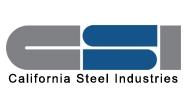Product

February 27, 2018
CSI Surprises Market with a $120 Price Hike
Written by Tim Triplett
California Steel Industries (CSI) surprised customers with a whopping $120 per ton price increase on all its flat rolled products on Monday, the same day that its main West Coast competitor USS-POSCO (UPI) informed customers that its April order book is now closed.
In its Feb. 26 letter to customers, CSI announced that it’s April order book is now open. “Due to changing market conditions, CSI is increasing transaction prices, effective immediately, by a minimum of $120 per ton on hot rolled, hot rolled pickled and oiled, cold rolled and galvanized. All pricing is subject to slab availability and mill capacity. Due to the limited availability, your regional sales manager will provide you with available tonnage in addition to your detailed pricing,” the letter stated.
This is the sixth and by far the largest single price increase announced by CSI since October. The other five ranged from $30 to $60 per ton each. All total, including the latest increase, CSI has raised the price of hot rolled by $310 per ton, galvanized by $290 per ton and cold rolled by $280 per ton in about four months.
The domestic flat rolled mills have all been raising prices steadily since October, but a single price hike of $120 is almost unheard of and speaks volumes about today’s unusual market conditions. With an announcement of new tariffs or quotas on steel imports expected soon from the Trump administration under Section 232, the market appears to be on hold with little foreign steel being offered into the West Coast market.
Steel Market Update sources expressed shock not only at the size of CSI’s latest increase but the push-out of lead times on some orders and talk of limiting the tons available to some customers. “CSI’s price increase announcement is a harbinger of things to come,” predicted one Texas-based service center. “It’s only a matter of time before they decide to serve West Coast customers to the detriment of other geographic locations due to the fact that Asian imports are cut off.”
The service center executive predicts the mills, both EAF and integrated producers, will put non-contract customers on allocation at an accelerated pace, and service centers’ tonnage will be limited. If President Trump follows the Commerce Department recommendations to further restrict imports, it could cause a serious steel shortage, leading to inflation, offshoring of manufacturing and unemployment at the nation’s ports. If the NAFTA negotiations block steel from Canada and Mexico, the damage to the economy will be even worse, he said.
“The market seems very close to shifting to an availability mode, rather than a price focus,” added a service center executive from the Midwest. He believes government action meant to push the industry operating rate above 80 percent could send flat rolled production even higher, perhaps leading to hot rolled prices of $1,000 per ton or more.







